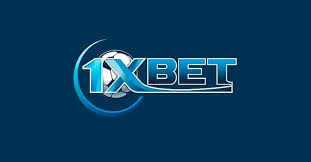
sport betting slots 1xbet Welcome to a comprehensive guide on sport betting — a world where knowledge, discipline, and psychology meet probability and risk management. Whether you are a newcomer intrigued by the excitement of predicting outcomes or an experienced bettor aiming to sharpen your edge, this article outlines essential concepts, practical strategies, and mindset adjustments that can improve your long-term results.
Understanding the Market: At its core, sport betting is about identifying value. Bookmakers set odds to reflect not just the expected outcome of an event but also the market demand and their margin. Your objective is to find bets where the probability you assign to an outcome is higher than the implied probability of the odds. This requires research, comparison across bookmakers, and sometimes exploiting market inefficiencies that appear around injuries, team news, or when public sentiment skews prices.
Bankroll Management: One of the most underestimated aspects of successful betting is bankroll management. Treat your betting capital as an investment portfolio. Establish a stake size based on a percentage of your total bankroll — commonly between 1% and 5% per bet depending on your risk tolerance and confidence in the selection. Flat staking helps avoid volatility and catastrophic drawdowns, whereas proportional staking (Kelly criterion variants) can optimize growth but requires accurate edge estimation, which is difficult in practice.
Research and Data: Good bets are backed by research. Analyze form, head-to-head records, injuries, suspensions, weather conditions, scheduling congestion, and motivation. For some sports, advanced metrics provide deeper insights: expected goals (xG) in football (soccer), player efficiency ratings in basketball, or serve and return statistics in tennis. Leveraging databases, historical trends, and video analysis can reveal patterns that casual bettors miss. Keep a record of bets, including rationale and outcome, to refine models and avoid repeating mistakes.
Value Betting vs. Tip Following: Many recreational bettors follow tips or blindly back favorites influenced by media hype. Value betting, by contrast, is a disciplined approach where you only place bets when the market odds underestimate the true probability. This often requires patience and discipline to wait for opportunities where the risk-reward ratio is in your favor. Relying on reputable tipsters can be useful for learning, but always perform your own assessment before committing stake.
In-Play (Live) Betting: Live betting opens dynamic opportunities as odds shift during an event. Quick reaction to momentum swings, substitutions, or tactical changes can create value. However, the live market is fast and often incorporates real-time information rapidly. Using live betting successfully demands focus, fast decision-making, and strict limits to avoid impulsive bets driven by emotion rather than analysis.
Specialization and Niche Markets: General knowledge across many sports is useful, but many successful bettors specialize. Narrowing focus to a league, competition, or market (e.g., handicaps, totals, player props) allows deeper knowledge and better predictive models. Niche markets often have less efficient odds because fewer bettors and bookmakers devote resources to them, which can create opportunities for edge.
Use of Models and Analytics: Quantitative models help remove emotional bias. Building an analytic model involves selecting predictive variables, weighting them, and validating the model on historical data. Machine learning techniques can assist with pattern recognition, but beware of overfitting. Models should be constantly tested and updated as team dynamics and player conditions evolve. Combine model output with qualitative insight for the best outcomes.
Psychology and Discipline: The psychology of betting is as important as the analytics. Avoid chasing losses with bigger stakes — a common path to ruin. Accept that variance is inherent: even positive-expectancy strategies experience losing streaks. Maintain discipline, stick to your staking plan, and review bets objectively. Emotions like overconfidence after a winning run or fear during a losing streak can distort decision-making.

Responsible Gambling: Always treat sport betting as a form of entertainment with financial risk. Set clear limits for deposits, losses, and time spent. Use tools provided by bookmakers such as deposit limits and self-exclusion if needed. If gambling begins to negatively affect relationships, work, or finances, seek help from support organizations. The goal is sustainable, controlled engagement rather than reckless risk-taking.
Arbitrage and Hedging: Arbitrage betting exploits price differences across bookmakers to lock in profit regardless of outcome. While theoretically risk-free, opportunities are rare, often small, and require rapid execution and multiple accounts. Hedging allows you to lock in profits or reduce loss by betting on the opposing outcome as odds shift. Both strategies demand careful calculation and awareness of bet limits and commission structures.
Legal and Regulatory Considerations: Laws and regulations vary by jurisdiction. Ensure that you bet only through licensed operators and understand tax implications in your country. Regulated markets offer consumer protections like dispute resolution, fair play assurance, and safeguards against fraudulent operators. Stay informed about local rules governing online and offline betting.
Bonuses and Promotions: Bookmakers offer bonuses to attract customers: free bets, matched deposits, and enhanced odds. These can be advantageous if used wisely, but always read terms and conditions. Rolling requirements, maximum stake limits, and withdrawal rules can reduce the perceived value. Use bonuses to experiment with new markets, but don’t let promotions drive your core betting decisions.
Live Streams and Information Edge: Access to live streams, official team communications, and local media can provide an information edge, particularly in lower-tier competitions where coverage is sparse. Fast, accurate information about player availability, pitch conditions, or managerial decisions can influence odds quickly — having reliable sources can help you capitalize when bookmakers are slow to react.
Banking and Record Keeping: Use reputable payment methods and maintain accurate records of transactions and betting history. Tracking returns, ROI, and yield helps evaluate performance objectively. Regularly reconcile accounts and prepare for any tax reporting obligations that apply in your jurisdiction.
Long-Term Mindset: Aim for steady, long-term growth of your bankroll rather than short-term wins. Measure success in terms of return on investment and edge per bet, not individual outcomes. Continuous learning, adapting to new data sources, and refining strategies are hallmarks of consistently successful bettors.
Emerging Trends: Technology continues to shape sport betting. Real-time data feeds, in-play algorithms, and mobile platforms increase access and speed. Blockchain and cryptocurrency betting are growing in some markets, offering different settlement mechanisms. Betting exchanges that let punters lay bets provide alternative strategies for hedging and trading market positions.
Final Tips: Start small, focus on markets you understand, and always quantify your edge before increasing stakes. Keep detailed records, use a disciplined staking plan, and treat betting as a skill to be developed. Embrace both quantitative and qualitative analysis, and never bet with money you cannot afford to lose. With patience, discipline, and continuous learning, sport betting can be an engaging pursuit that rewards thoughtful, controlled approaches.
